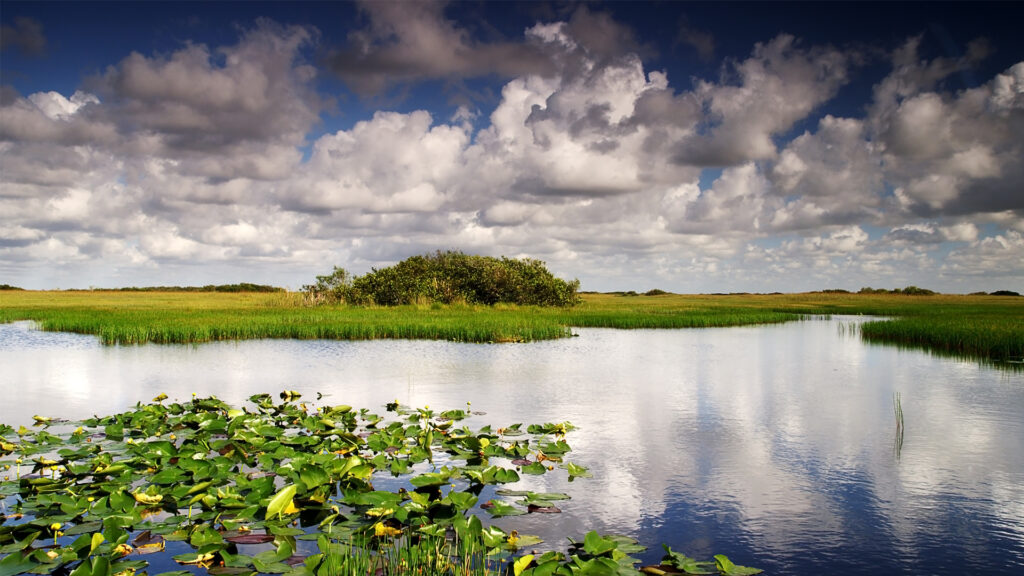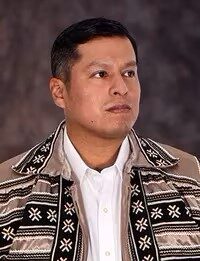By Talbert Cypress, Miccosukee Tribe of Indians of Florida
The Big Cypress National Preserve and the Greater Everglades surrounding it are currently and perpetually at risk of further damage caused by oil drilling. In 2017, Texas-based Burnett Oil conducted seismic testing using trucks weighing more than 30 tons that scarred 110 square miles of the Big Cypress looking for oil.
Now, there are plans to expand drilling below the Big Cypress National Preserve and Florida Panther National Wildlife Refuge, just below the porous aquifer. These plans would create snaking tunnels and require highly caustic acids to be injected into the ground, threatening perhaps one of the most important resources we Floridians have: our aquifers.

Oil companies are able to drill for this oil with minimal regulation, because the mineral rights below the Big Cypress and the wildlife refuge are still privately held. The Miccosukee Tribe of Indians of Florida has a plan to #stopthedrilling. Our tribe is working with local, state, and federal governments to appraise these private mineral rights for public acquisition using the royalties from offshore oil drilling that are collected and held by the federal government in the Land and Water Conservation Fund. If successful, the acquisition would protect the ecosystem, the climate, tribal land rights and satisfy private interests.
The Big Cypress has been home to our people since time immemorial. When our people lived in North Florida and traversed the eastern coast, we would make pilgrimages down the Florida peninsula to the Big Cypress and the river of grass to hunt, fish and participate in religious ceremonies. The First and Second Seminole Wars saw our people pushed deep into the Big Cypress and the Greater Everglades. By 1858, Col. Gustavus Loomis had burned every field and village he could find in the Big Cypress, before declaring victory for the U.S. and leaving the Miccosukee and Seminole isolated in the river of grass, where our ancestors took refuge on the tree islands. We escaped annihilation with the help of the Everglades.
Once the U.S. abandoned their effort to remove the last of our ancestors from Florida, our people quickly reoccupied the Big Cypress. Since the end of the wars, our people have been fierce advocates for our Mother Everglades because she protected us in our time of need. When the world’s largest airport (the Everglades Jetport) was proposed for development in the Big Cypress region in the late 1960s, our people joined the opposition. In the end, the Big Cypress National Preserve was created — made possible by a unique compromise that left our traditional villages in place, allowed hunting and fishing in the Preserve, but also reserved mineral rights for private use.

While the risks of fossil fuel extraction were less well-known in the 1970s, we now know that more than 10,000 gallons of oil has spilled into the Big Cypress. Rising sea levels and novel extraction methods like horizontal drilling will only make the drilling and pumping of oil more dangerous. Any further spills would permanently damage the Big Cypress ecosystem and flow to the coastal estuaries and beaches of south Florida, all while poisoning the aquifer that supplies all of South Florida with drinking water. The drilling must come to a permanent end.
If there was ever a time to drill in the Everglades, we are long past it. The “Sunniland Trend” oil field, as it’s known, contains low-quality oil, making extraction costly and further increasing the risk of equipment failure (all without a drop going into a gas tank). While modern society may require energy production, it no longer needs to be at the cost of our ecosystem and our planet.
Please reach out to your elected representatives, and let them know that the proposed acquisition of mineral rights under the Big Cypress is a simple fix to a difficult problem. I’ve talked with Floridians from around the state. I have been to the halls of Congress in Washington and Legislature in Tallahassee to meet with representatives from both sides of the aisle. One thing has become resoundingly clear: All Floridians, regardless of party or politics, think that oil drilling in the Everglades and Big Cypress is an absurd idea that should be forever abandoned.
Talbert Cypress (Otter Clan) is the elected chairperson of the Miccosukee Tribe of Indians of Florida, a federally recognized tribal nation located in the Interior Everglades. This opinion piece was originally published by the Tampa Bay Times, which is a media partner of The Invading Sea.
If you are interested in submitting an opinion piece to The Invading Sea, email Editor Nathan Crabbe at ncrabbe@fau.edu. Sign up for The Invading Sea newsletter by visiting here.




Thank you for your advocacy on behalf of Big Cypress and all of creation that depends upon her for survival.